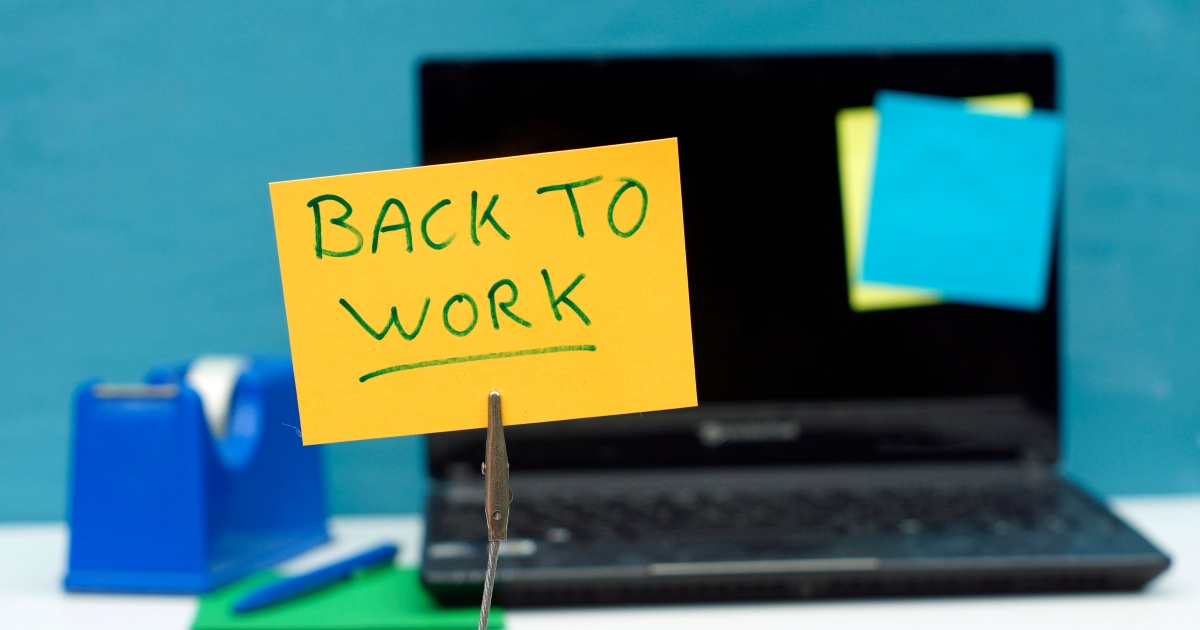
Remote work used to be seen as a trend that only some people were selected for; that is, the privilege of working from home. But because of the pandemic, the trend soon became a shift in the way many of us approach employment. Many more employees started to see the perks of remote work – perks that allowed employees to thrive.
Many realized that remote work offers a multitude of benefits, including flexibility in setting one's own schedule, the freedom to work from anywhere, relief from the stress of commuting, increased productivity, better health and wellbeing and access to a broader talent pool for employers.
Owl Labs, a company that builds AI-powered, 360-degree video conferencing solutions for hybrid organizations, likes to keep tabs on the state of remote and hybrid work to uncover the latest trends and perspectives.
In its seventh annual “State of Hybrid Work Report,” Owl Labs revealed the current return to office divide, with employers putting their energy into calling people back, but missing the mark on what their employees really need from the in-office or hybrid experience.
Many employers mandating a return to the office have encountered substantial resistance, ranging from open letters and strikes to a phenomenon known as "quiet quitting" and actual resignations. A majority of employees, according to the report, perceive that their employers are compelling them to return to the office due to traditional work expectations, despite the fact that 60% of hybrid workers believe they are more productive when working remotely, with an additional 30% indicating that their productivity remains consistent.
In response to this resurgence of office demands, a subtle form of protest has emerged, with 58% of hybrid workers engaging in "coffee badging." Coffee badging is a practice where they briefly show up at the office to have a cup of coffee, as if earning an imaginary badge, before returning home to complete their work. Another 8% express interest in attempting this approach.
The report then looked deeper as to why employees do not want to spend a full day in the office.
One primary reason for their reluctance to spend a full day in the office is the considerable cost involved. On average, workers expend $51 per day when they commute to the office, amounting to $408 per month for hybrid workers (eight days per month) and $1,020 per month for full-time office workers, according to the report. This means that in-office, full-time employees spend three times more than their full-time remote counterparts. These expenses encompass daily outlays of $16 on lunch, $14 on commuting, $13 on breakfast and coffee and $8 on parking. Those with pets also allocate an average of $20 per day for pet care.
Commuting time also plays a significant role in this trend, as 61% of workers spend between 30 minutes to 1.5 hours commuting daily, with an additional 20% dedicating 1.5 to 2 hours to their commute, according to the report. The office experience needs to justify the time and effort spent on commuting. Instituting flexible hours, allowing employees to arrive after the morning rush hour and depart before the evening one, could have a substantial impact on reducing daily transit times.
The resistance to returning to the office is also attributed to the advancement of videoconferencing technology and increased familiarity with it. Many individuals believe that in-person meetings do not necessarily offer significantly more value compared to remote or hybrid alternatives. Only 54% of workers report that business trips at their organizations have returned to pre-pandemic levels, with employees at larger companies (250 or more people) being 20% more likely to assert this compared to their counterparts at smaller businesses, according to the report. Although the average number of business trips per person in 2023 is 4.5, workers believe that over half of those trips could have been conducted virtually instead.
Despite their reservations, 94% of workers express a willingness to return to the office; however, traditional enticements that once lured employees back are no longer sufficient. What employees desire is the opportunity to save money. Over one-third of hybrid workers would be more inclined to embrace the office if their employers covered their commuting expenses, according to the report. Additionally, 28% could be enticed by subsidies or on-site alternatives for daycare or eldercare, likely driven by the current caregiver shortage.
Employees also expressed that a perk they desire is for employers to want to consider revising or abolishing their dress codes. Many who work from home wear anything they want. The main thing is to feel comfortable. If the dress code was revised, a quarter of all workers would be motivated to return to the office if they were allowed to wear any clothing or style they prefer, and an additional 25% indicate a willingness to accept a 15% pay cut for this privilege, according to the report.
“People don’t want to spend time and money on frequent office pilgrimages if they’re just going to be sitting on the same video calls they’d be doing in the comfort of their own homes or on tasks that they feel less productive doing from the office,” said Frank Weishaupt, CEO of Owl Labs.
Based on what is seen in the report, numerous companies still have improvements to make in creating an appealing, efficient and anxiety-free office space that genuinely entices employees to come to the office.
Be part of the conversation to understand the Future of Work and how the employee experience is changing, at Future of Work Expo 2022. The conference focuses on key elements of today's re-imagined workplace, not just for improving productivity, but also providing a better experiences, through the intersection of technology like AI and the human element. Future of Work Expo is part of the #TECHSUPERSHOW experience, taking place February 13-15, 2024, in Fort. Lauderdale, Florida.
Edited by
Alex Passett